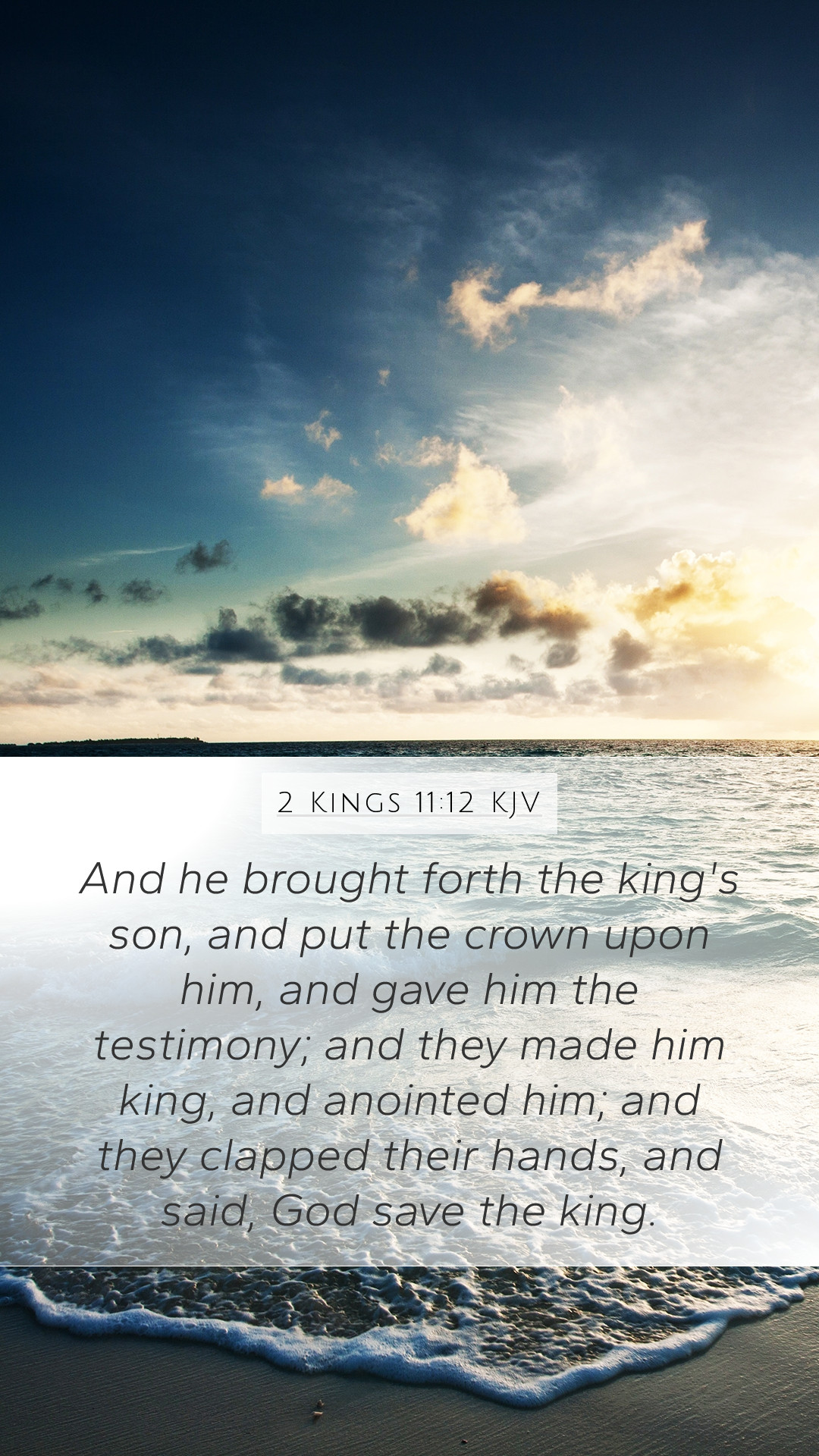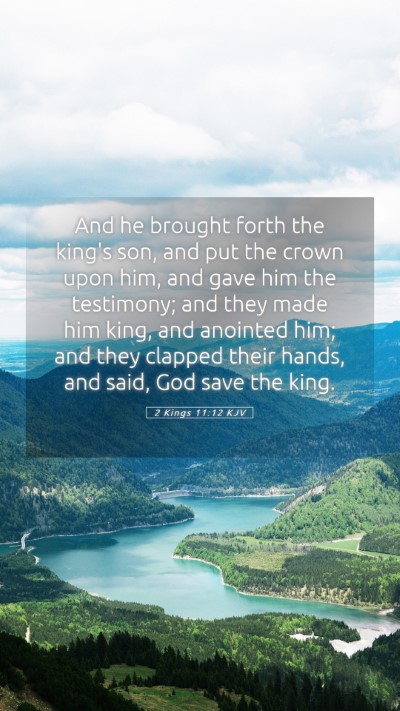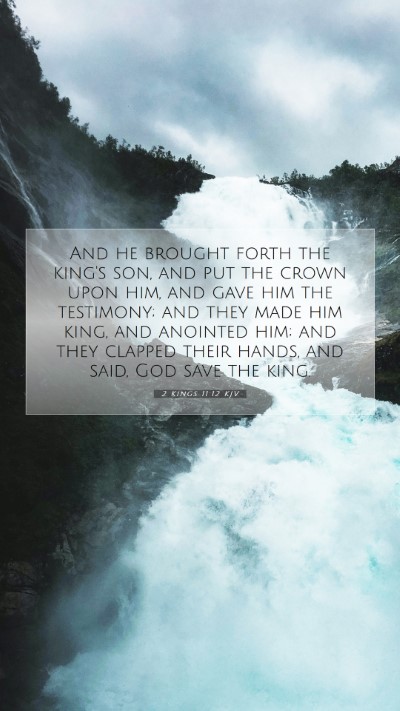Old Testament
Genesis Exodus Leviticus Numbers Deuteronomy Joshua Judges Ruth 1 Samuel 2 Samuel 1 Kings 2 Kings 1 Chronicles 2 Chronicles Ezra Nehemiah Esther Job Psalms Proverbs Ecclesiastes Song of Solomon Isaiah Jeremiah Lamentations Ezekiel Daniel Hosea Joel Amos Obadiah Jonah Micah Nahum Habakkuk Zephaniah Haggai Zechariah Malachi2 Kings 11:12 Meaning
What is the meaning of 2 Kings 11:12?
And he brought forth the king's son, and put the crown upon him, and gave him the testimony; and they made him king, and anointed him; and they clapped their hands, and said, God save the king.
2 Kings 11:12 Bible Verse Meaning
Bible Verse Meaning and Commentary: 2 Kings 11:12
Verse: "And he brought forth the king's son, and put the crown upon him, and gave him the testimony; and they made him king, and anointed him; and they clapped their hands, and said, God save the king."
Overview
The verse 2 Kings 11:12 marks a pivotal moment in the historical narrative of Israel's monarchy. This passage highlights the restoration of rightful leadership in Judah amid a tumultuous political backdrop. The coronation of Joash, the king's son, signifies God's faithfulness to His covenant promises.
Insights from Public Domain Commentaries
Matthew Henry Commentary
Matthew Henry emphasizes the importance of the anointing ceremony, suggesting that it represents divine approval. He notes that the act of placing the crown on Joash and providing him with the 'testimony' indicates the significance of adhering to God's law and His covenant with the people of Israel. This public declaration is a profound reminder of accountability to God and the people in leadership.
Albert Barnes Commentary
Albert Barnes provides a detailed analysis of the sociopolitical context surrounding Joash's installation. He identifies the crown and the book of the law (the testimony) as essential elements in legitimizing the king's rule. Barnes suggests that this moment is a restoration of order and symbolizes hope for the nation of Judah, which had been under the oppressive influence of Athaliah. Thus, the text not only depicts a historical event but also serves as a theological reflection on the sovereignty of God in raising up leaders.
Adam Clarke Commentary
Adam Clarke adds depth to the understanding of the character of Joash. He notes that this young king, brought forth amid danger, represents God's preservation of a remnant in Israel. Clarke discusses the significance of the people's reaction – their joy and proclamation of "God save the king" exemplifies popular support and the anticipated blessing of God upon a divinely appointed leader.
Key Themes
- Divine Sovereignty: The anointing of Joash reinforces God's control over Israel's destiny.
- Restoration and Renewal: This event signifies hope and the restoration of rightful leadership in a broken nation.
- Public Acclamation: The people's response illustrates the importance of communal support for leadership aligned with God's will.
- Adherence to Covenant: The reference to the 'testimony' signifies the necessity of following God's law.
Related Cross References
- 2 Kings 9:12-13: This passage relates to the anointing of Jehu, highlighting the theme of divine choice in leadership.
- Isaiah 9:7: Refers to the promise of a ruler who will bring peace and justice, connecting to the hope embodied in Joash.
- 1 Samuel 10:1: Samuel anoints Saul, setting a precedent for the divine selection and endorsement of leaders in Israel.
Conclusion
The exploration of 2 Kings 11:12 offers profound insights into biblical themes that resonate throughout scripture. Understanding this verse through the lenses of various commentaries enriches one’s biblical studies by demonstrating God’s unwavering faithfulness in the face of human adversity. For those conducting Bible study lessons or diving into online Bible study, engaging with verses like this fosters a deeper appreciation of Biblical exegesis and enhances scripture analysis.
As individuals or groups seek to deepen their Bible study insights, this verse stands as a significant testament to how God orchestrates history, ensuring that His plans are fulfilled amidst chaos. Whether in a bible study group or personal reflection, the message of 2 Kings 11:12 encourages believers to recognize God's control over their lives and inspires trust in His larger narrative.


